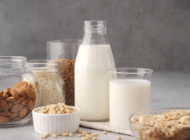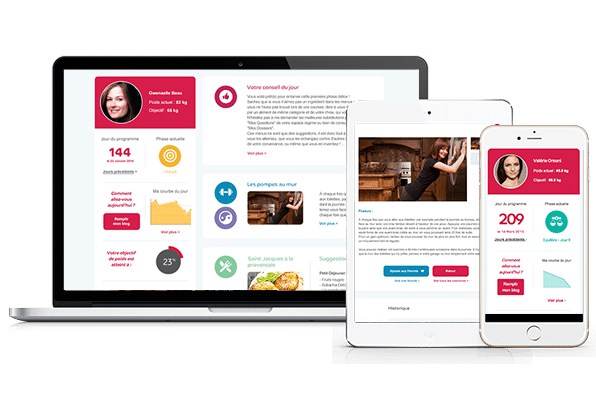We all know that dreaded and frustrating “bloated” feeling.
What is it caused by, and what is your body trying to tell you?
Here are 6 common reasons you might be bloating – and solutions that are bound to work.
1. You have an overgrowth of candida (yeast) in your gut as a result of your diet. Candida thrives on sugar, starch, molds and other yeast strains. To put it simply, too much yeast in your gut can make you feel bloated.
Solution? Avoid foods which support candida growth, and feast on foods which prevent it.
Foods which support candida growth (to avoid): sugar products, processed products, ready-made meals, fermented foods, dairy products*, eggs, meat, gluten, yeast, alcohol, carnivorous and predatory fish, high-sugar fruits, caffeine, high-fructose corn syrup, aspartame and other potentially unsafe chemical sweeteners. (*excepting kefir on occasion, as it is excellent for beating candida.)
Foods which help prevent candida overgrowth and restore balance to your gut system (to opt for): garlic, probiotics, rutabaga, coconut oil, onion, lemon juice, cruciferous vegetables, cloves.
2. You’re not chewing your food sufficiently. The digestive process starts in our mouth, so, the more time we take over chewing, the more time our saliva and its digestive enzymes have to get working. When food arrives in the stomach half-chewed, larger food particles pass into the gastrointestinal tract, leading to bloating.
Solution? Take time over your meals. Chew each bite 5 to 7 times, and put your fork down between bites. When you eat – just eat. Do not participate in a second activity (apart from enjoying your friends’ company), no matter how convinced you are that you can do two things at once. Focus on the task at hand – eating – and become more aware of your body’s signals. Notice the texture of the food. Notice the flavors. Notice what your body is telling you about these foods. Feel the sensation of chewing, swallowing, and digesting. Let the flavors tantalize your taste buds.
3. You’re drinking too much while you’re eating. This dilutes digestive enzymes, causing food to take longer to digest, leading to fermentation and bloating. Fizzy drinks will do even worse as the air contained in carbonated drinks can get trapped in our digestive system, causing bloating.
Solution? If you need a drink during your meal, choose a warm (vs cold), non-carbonated one, and take small sips (vs full glasses).
4. Your serving sizes are too large. When we eat more than the size of our stomach (remember, it’s the size of your fist), digestion takes longer and food ferments, causing bloating.
Solution? Instead of large portions at mealtimes, try eating 4 small meals a day – even 5, if this works for you. And if you’re dining out, ask to have half your dish wrapped up to go before you even start eating! Trust me, you’ll be totally satisfied from the “half” on your plate, and you’ll realize the serving size was truly double what you needed.
5. Your diet is too high in sodium. Too much sodium can cause bloating, too. Many common processed and frozen food products contain more than 200% of your maximum daily allowance!
Solution? Buy products with “reduced-sodium” on the label, and at home, cook without salt and only add it in small quantities just before serving or eating. Do not leave the salt shaker on the table – keep it far away from the hand and far from the plate. Herbs, spices, and other seasonings make ideal substitutes that will titillate your taste buds without added calories and sodium and, hence, without any impact on your health.
6. You’re stressed. Intense stress leads to shallow breathing, which in turn leads to bloating. Indeed, when we are stressed, we breathe in a shallow, or superficial way. Our diaphragm – which contracts and expands as we breathe – does not do its job properly anymore, and our lungs don’t inflate and deflate as they should, so we take in less oxygen. A tense diaphragm causes a compressed abdomen, which can lead to abdominal pain, gas, and the dreaded and frustrating “bloated” feeling.
Solution? Practice abdominal breathing. This involves inflating your abdomen when you inhale through the nose (filling up deeply with air), and deflating it when you exhale through the mouth (breathing out deeply so your tummy goes flat). You don’t need to force the move too much. Rather, follow your breath and let it circulate in a fluid manner. Do this for 2 to 3 minutes every time you are stressed or, better yet, when you know that stress is likely to occur.
Want more tips for a flat tummy and better digestion? Join me on LeBootCamp!
To your health,
Valerie Orsoni
Your LeBootCamp Coach
Tags: abdominal breathing abdominal pain bloat bloated bloating candida coach coaching diet digestion gas gut health gut issues health lebootcamp nutrition probiotics salt sodium stomach stress tummy Valerie Orsoni weight loss yeast

























Leave a Reply